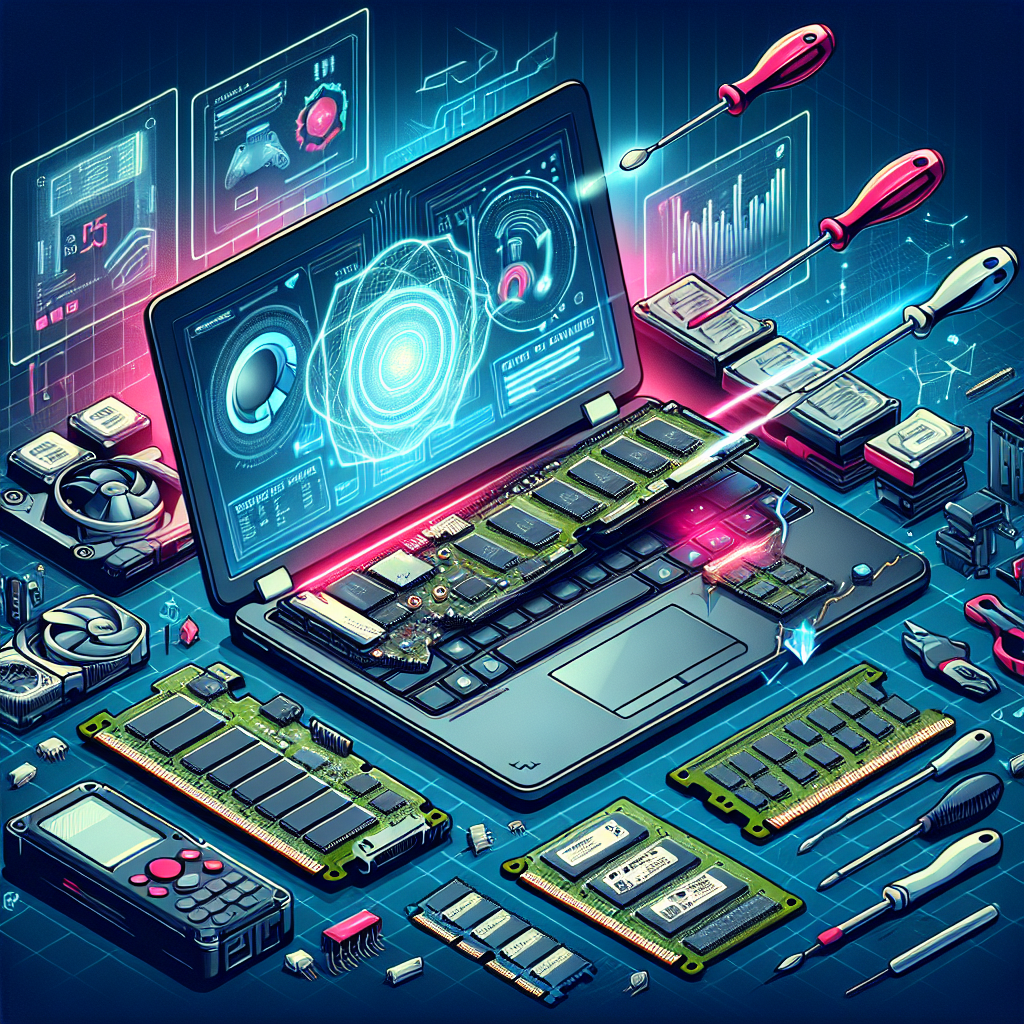10 Ways to Upgrade & Optimize Your Laptop for Gaming

In the realm of gaming, performance is key. If you’re using a laptop to game, you might occasionally experience lag or low frame rates that hinder your overall experience. Fortunately, there are several strategies you can employ to optimize and upgrade your laptop for a seamless gaming experience. Here are 10 ways to enhance your laptop’s gaming performance:
1. Upgrade Your RAM
One of the simplest and most effective ways to boost your laptop’s performance is by upgrading the RAM. More RAM allows your system to handle multiple processes simultaneously, reducing lag and improving game load times. Aim for at least 16GB for optimal gaming performance.
2. Install an SSD
Switching from a traditional hard drive to a solid-state drive (SSD) can significantly speed up your laptop. An SSD ensures faster boot times, quicker game loads, and generally smoother gameplay. Consider using a high-capacity SSD for storing games and operating system files.
3. Optimize Graphics Settings
Tweaking your game’s graphics settings can have a profound impact on performance. Lower the resolution, reduce the quality of textures, or disable intensive visual effects to boost frame rates. Graphics settings adjustments can often result in a substantial performance improvement without major hardware changes.
4. Update Drivers
Regularly updating your GPU drivers ensures that your hardware is performing at its best. Manufacturers frequently release driver updates that optimize game performance and fix bugs. Check for updates from your GPU manufacturer’s website.
5. Use Cooling Pads
Overheating can reduce your laptop’s performance and lead to thermal throttling. Using a cooling pad can help dissipate heat and keep temperatures in check, which is especially important during long gaming sessions.
6. Adjust Power Settings
Never underestimate the power of adjusting your laptop’s power settings. Set your power plan to High Performance to ensure your system utilizes maximum power for gaming. This can improve performance but may affect battery life.
7. Clean Your Laptop
Dust and debris can accumulate in your laptop’s vents, causing it to overheat and perform poorly. Regularly cleaning the vents and fans can maintain optimal airflow and prevent overheating issues.
8. Disable Background Processes
Background processes and startup programs can consume valuable resources that could be better utilized by your games. Use the Task Manager to identify and disable unnecessary processes running in the background.
9. Upgrade Your GPU
For the ultimate boost, consider upgrading your laptop’s GPU, if possible. While not all laptops support this, some do offer modular GPU upgrades. This can be a game-changer in terms of graphics performance.
10. Overclock Your GPU
Overclocking your GPU can push its performance beyond the factory settings. This should be done cautiously, as it can increase temperatures and wear on your components. Use reputable software and ensure proper cooling when overclocking.
Conclusion
Enhancing your laptop for gaming involves a combination of hardware upgrades and software optimizations. By following these tips, you can significantly improve your laptop’s gaming performance and enjoy a more immersive gaming experience.
